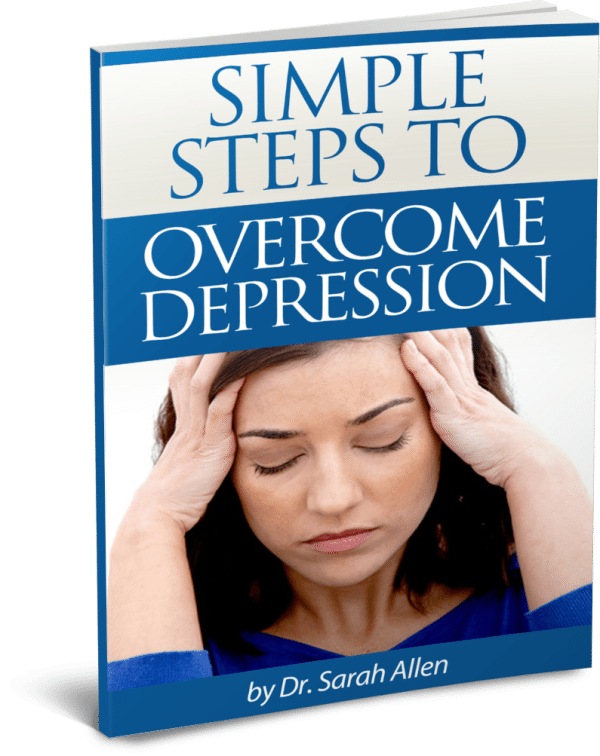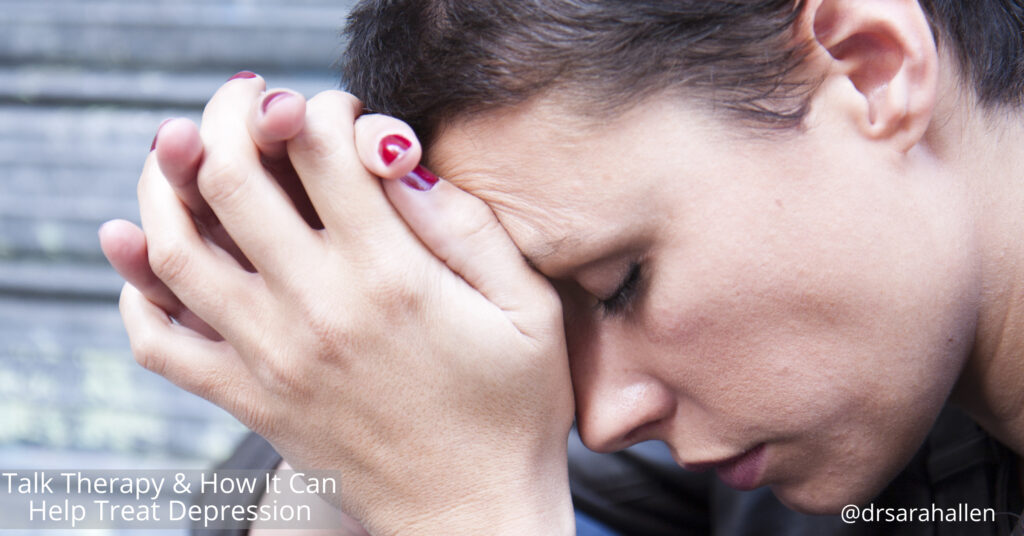
Seasonal Affective Disorder (SAD) is a type of depression that typically happens to a person at the same time every year. Most people with SAD feel depressed during the fall and winter months when there is less sunlight. Symptoms of SAD include feeling sad, losing interest in activities, and having low energy. It can affect a person’s daily life and make it hard to function normally.
I find that when I work with people who are experiencing SAD, a type of talk therapy called Cognitive Behavioral Therapy (CBT) is very effective in helping them manage their symptoms. CBT focuses on identifying the way their thoughts and behaviors are leading to feelings of depression and we work on developing effective ways of thinking and coping that then reduce their symptoms.
CBT teaches practical skills to deal with SAD. These skills include identifying negative thoughts, changing unhelpful behaviors, and using techniques to improve mood. CBT can be highly effective in reducing symptoms and improving quality of life. By understanding how CBT works and its benefits, people suffering from SAD can take steps to control their mental health symptoms and feel better even during the darker months.
Understanding Seasonal Affective Disorder (SAD)
Seasonal Affective Disorder (SAD) is a type of depression that occurs at certain times of the year, most commonly in the winter. This condition is linked to the reduced daylight hours during the colder months. Some of my clients have experienced symptoms such as depression, low energy, and a loss of interest in activities they usually love. They often describe changes in their appetite, sleep disruptions, and troubles with concentration.
SAD is more than just feeling a bit down when the weather gets cold. It is a serious mental health condition that can greatly affect daily life. The exact cause of SAD is not fully understood, but it is believed to be related to changes in the body’s internal clock and levels of serotonin, a brain chemical that affects mood. Reduced sunlight in winter can disrupt the body’s internal clock, leading to feelings of depression.
I’ve learned that understanding SAD can significantly help affected individuals realize they’re not alone. By identifying the symptoms and seeking help, one can experience a notable difference in their quality of life. Together, with the right support and strategies, managing SAD becomes attainable.
Cognitive Behavioral Therapy (CBT) for Treating SAD
Cognitive Behavioral Therapy (CBT) has shown itself to be a highly effective treatment for Seasonal Affective Disorder. I often work with my clients to identify and reshape the negative thought patterns and behaviors that feed into their depression. When winter hues set in, the mind can become a breeding ground for negative thoughts. CBT allows us to tackle these directly, promoting healthier thinking and coping mechanisms.
Unlike medication that primarily alleviates symptoms, CBT digs deeper, addressing the core causes of SAD. This depth makes CBT an invaluable component of long-term management, providing strategies that clients can revisit each year to combat seasonal depression. Generally, CBT for SAD involves regular sessions where we work collaboratively to understand and alter the thought and behavior patterns impacting mental health, leading to improved mood and a more positive life outlook.
How CBT Works to Alleviate SAD Symptoms
CBT helps reduce the symptoms of Seasonal Affective Disorder by changing negative thought patterns and unhealthy behaviors. When people suffer from SAD, they often have negative thinking and a low mood. CBT teaches them to challenge and replace these negative thoughts with more positive and realistic ones.
Together, we undertake exercises designed to identify counterproductive habits and replace them with more helpful behaviors. This transformation often results in improved mood and better resilience in facing SAD’s challenges. Furthermore, we focus on setting and achieving small, meaningful goals. These achievements provide boosts in self-esteem and motivation, equipping individuals with practical tools for daily use.
Techniques Used in CBT:
1. Cognitive Restructuring: Identify and challenge negative thoughts to change how you perceive and react to situations.
2. Behavioral Activation: Engage in activities that boost mood and energy.
3. Mindfulness: Practice staying present and reducing the focus on negative thoughts.
4. Goal Setting: Set achievable goals to improve motivation and self-esteem.
5. Problem-Solving: Develop skills to tackle challenges and reduce stress.
These techniques empower people to manage their symptoms and improve their quality of life even during the darker months.
Benefits of CBT Compared to Other Treatments
Through working with my clients, I’ve observed several advantages CBT offers over other treatments for Seasonal Affective Disorder. A significant benefit is its emphasis on developing long-term coping strategies. Unlike medication, which may provide temporary relief, CBT equips individuals with skills that endure year after year.
Medication, such as antidepressants, can be effective for some people but may have side effects. CBT does not involve medication, making it a safe option with fewer risks. Moreover, CBT empowers individuals by giving them control over their mental health. They learn practical skills that help them manage symptoms without relying solely on medication.
CBT also has been proven effective through research. Studies show that CBT can reduce symptoms of SAD and the risk of it returning in the future. These benefits make CBT a highly recommended treatment for those struggling with seasonal depression. By choosing CBT, individuals can gain long-lasting tools to improve their mental health and overall well-being.
In summary, Seasonal Affective Disorder can significantly impact daily life, making the colder months feel daunting and unmanageable. However, Cognitive Behavioral Therapy offers a proven and effective solution. By focusing on changing negative thought patterns and behaviors, CBT helps individuals develop healthier ways of coping. Techniques such as cognitive restructuring, behavioral activation, and mindfulness provide practical tools to combat SAD symptoms.
Choosing CBT over other treatments provides long-term benefits without the risks and side effects of medication. The skills learned in CBT empower people to manage their mood and improve their quality of life year after year. If you or someone you know struggles with SAD, consider exploring CBT as a treatment option.
For expert help with managing SAD, reach out to Dr. Sarah Allen, who offers in person counseling in Northbrook IL and works with clients in the Chicago area, FL and the UK. Visit Dr. Sarah Allen’s website today to learn how CBT can help you overcome seasonal depression and enhance your mental health.

If you have any questions, or if you would like to work with me and learn more about how to manage depression, please phone me at 847 791-7722 or on the form below.
If you would like to read more about me and my areas of specialty, please visit Dr. Sarah Allen Bio. Dr. Allen’s professional license only allows her to work with clients who live in IL & FL & the UK and unfortunately does not allow her to give personalized advice via email to people who are not her clients.
Dr. Allen sees clients in person in her Northbrook, IL office or remotely via video or phone.

What Can I Read That Helps Me While I Am Waiting For My First Appointment With Sarah?
Download this free report to gain valuable insights and practical strategies for managing depression and reclaiming your peace of mind.











